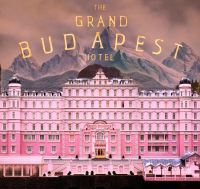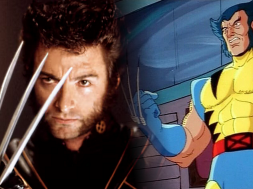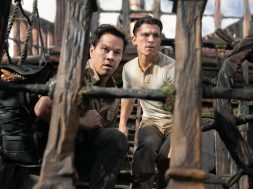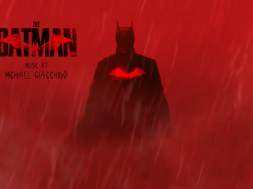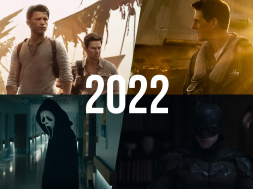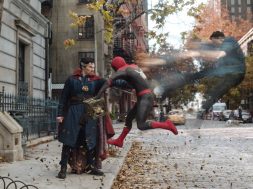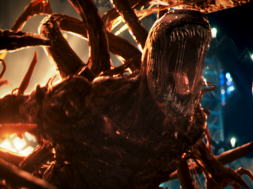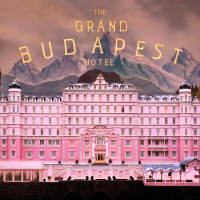
My father and I often disagree about the rewatching films. I maintain that watching a film is a reciprocal process. Simply put, when you watch a film – especially a great film – not only is much brought to you by the film, much is also brought to the film by us. So much is brought by both parties that it cannot be appreciated on a single viewing. To mix idioms: you never do watch the same film twice; a book benefits from re-reading. Dad maintains that a single viewing is sufficient. I’ve heard many make the same case, citing their annoyance at the serial trotting out of Troy (2004) on satellite TV as a case in point. It is certainly a good example of how repetitiveness is not a virtue: but to conflate repetitive viewing with repeated viewing is at best an over-simplification. Yet late Sunday afternoon he concurs with my remark that I’d like to see Wes Anderson’s The Grand Budapest Hotel again. As I write I am mindful of my previous Arcade review of August: Osage County and not falling prey to the trap of all hacks: ironically repetitiveness. Still, it seems reasonable that good films – good anything perhaps – require re-experience to appreciate their manifold nature.
Manifold is indeed the word. That’s hardly a spoiler this being a Wes Anderson film, but on the matter of spoilers there are a few to come. An elaborate frame narrative means that we must wait what must be 15-20 minutes before meeting out leading man Monsieur Gustave H. played by Ralph Fiennes.
The succession of one narrative frame to the next is one of the films fundamental charms so I will not elaborate on the elaborate sequencing of the films narratives – that’s a spoiler too far. Suffice to say that the opening scene is three frame narratives removed from the Fiennes’ first appearance as the grandiose concierge. And as we get approach him the general experience becomes stranger by degrees. Anderson characteristically deploys a red herring in the form of Tom Wilkinson’s exposition that attests to the truth of what follows. However, Wilkinson is belied by the mis-en-scene that has made the promotional material so loud. For example, when we get to Gustave H many of the furnishings are lopsided, from tables, chairs, doors, door frames, the funiculars and Masseur G’s rostrum (for he has one). That fact that all is set at an angle is revealing of Anderson’s whole style, one that reflects on its own process, acknowledging through the slanted scenery that the views fiction affords are always distorted.
In the case of Ralph Fiennes’ performance this is never more so: Monsieur Gustave has no back story, no last name, only an initial. F. Murray Abraham’s character holds that Monsieur Gustave H.’s time was over before he could be born into it, a description that captures anachronistic man that is a joy to watch. The film’s cleverness then is source of great humour but also pain. As we travel into each new frame we discover new characters which are paradoxically old characters, relative to the first frame. The context then imbues the film with a sense of ubi sunt, an atmosphere that is shot through the form of the hotel itself and brought to bear by the whole ensemble cast.
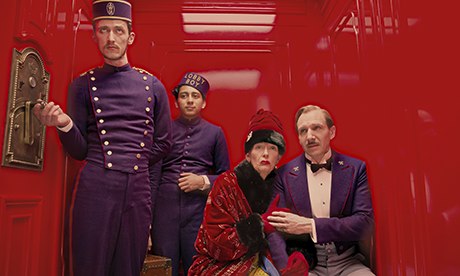
Writing about Fiennes only would leave one with ample material. However, the other cast members deserve mentioning to say the least, if only for the fact that they are all of a calibre that makes the term star studded not just a cliché but an understatement. Don’t be fooled however; TGBH was not cast with big names for big names’ sake mentality methinks. At the sound of all the names iterated in Anthony McGlynn’s Friday Flix Fix, I confess I was worried that the film would be dragged down by a crowd of thespians getting in the way of one another. Yet it is all of a piece with the film’s crucial theme of the great departed. To have that many thesps in one place at one time is a decedent, which is the operative word when describing the Grand Budapest itself. On the other hand, there is, of course, a monetary motive for the casting. It would be naïve not to observe that big names are a big draw. Then again, with Andersons scrupulous attention to detail it would be cynical to call it a marketing a decision only. Aside from the arch that they provide the performances are excellent all round.
The film was an utter delight and I cannot wait for the DVD so that I can unpick it some more.
8/10
